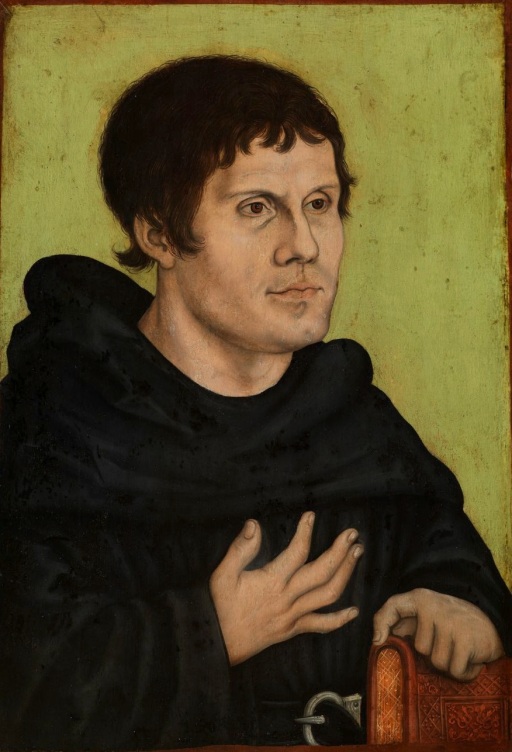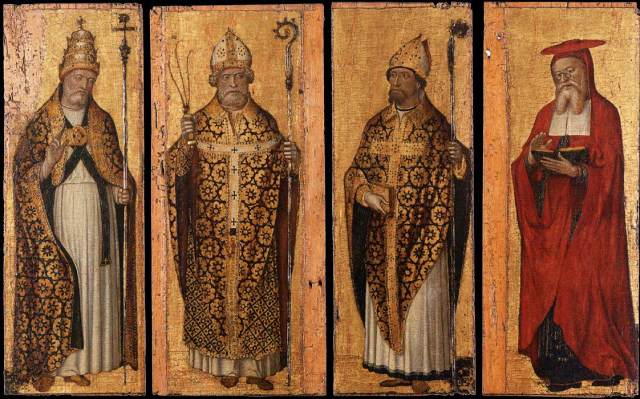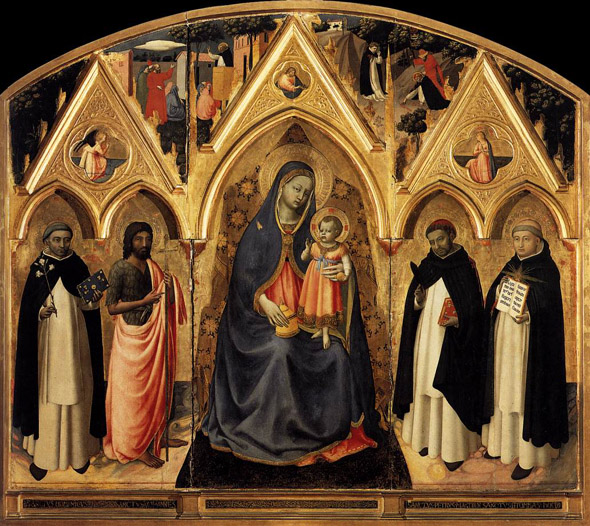Having read five chapters of commentary on the Gospel of Matthew, I would like to recommend St. Thomas Aquinas’ Catena Aurea to my dear readers. This work was perhaps the best present I received around Christmas, especially since Scripture somehow seems less enlightening of late. (The fault lies with my own pride.) The Catena Aurea parses passages of the Gospels with passages from the Church Fathers on the Gospels and doctrine. The doctors St. Thomas Aquinas draws from most frequently are St. Augustine, St. Jerome, St. John Chrysostom, St. Hilary of Poitiers, St. Remigius, and St. Leo the Great–my Confirmation patron.
I mentioned that my perusing of Scripture has not been as penetrating as formerly, which reminds me of how the Bible has been called God’s “Closed Book” while nature is God’s “Open Book.” This derives from the fact that the meaning of the Scriptures must be revealed by the Holy Spirit. One might believe that they can gain a literal understanding of the Scriptures without the Holy Spirit; but how often does one hear things like “I stopped believing when I saw that Scripture passages contradicted themselves” or that someone takes a literalistic view of scriptures and does something that Scripture did not intend–such as when Origen castrated himself so that he might enter the kingdom maimed rather than tossed whole into everlasting flames. The best thing that a Christian can do in order to perceive the true meaning of the Scriptures is to follow the pronouncements of established authority.
The Christian faith, unlike philosophy, relies on authority. The great difficulty of Protestantism is that it acknowledges an authoritative work–the Bible, but has no authoritative interpreters. Once when I boasted to a Lutheran friend of mine that I should have no trouble passing myself off as a Lutheran by merely agreeing with Luther, he countered that I would be discovered right away: a good Lutheran holds points of contention with the founder, and my friend thought the very name “Lutheran” actually misleading. But, even among Protestants, there are recognized authorities, even if they might be cast off should they conflict with one’s personal interpretation.
Catholics have it easy: the Church councils, the pope speaking ex cathedra, and the bishops acting in concert and in communion with the Pope have infallible interpretative authority. They are guided by the Holy Spirit in such a way that they cannot err. In order of authority, the Doctors of the Church come after this. These men strove to uphold the truth of Christian doctrine and remain loyal to the Church. By adhering to authority, they tended to be on the side of the right, though they were occasionally wrong when the Church had not clarified doctrine completely or needed to confess ignorance on certain questions. Most famously, St. Augustine was unsure whether original sin was placed on newly created souls by God, passed on by the souls of the parents, or derived from the taint of lust during conception. Now, we know that the first view is correct, but this remained an unsettled question during the time of St. Augustine. Next in authority come other saints, clergy, theologians, religious teachers, and lastly us ordinary lay people.
That’s right. If you’re reading this, you’re probably with me on the bottom of the totem pole as the least reliable interpreters of Scripture and doctrine. For example, I imprecisely held that baptism removed original sin from the soul. Rather, it removes original guilt from the soul, i.e. we still suffer from the effects of original sin (concupiscence), but are no longer denied entrance into heaven. Of course, I knew that concupiscence existed, but I thought that this derived from the fact that we have physical bodies in an imperfect state. Live and learn! Unless we subscribe to an authority, especially the most perfect authority of the Church, we ought to always keep in mind that our understanding of Scripture and doctrine might be incorrect. Humility is God’s favorite virtue, and we should quickly become proud should we believe in our own infallibility.
People joke that Catholics do not read the Bible, but Catholics do read works written by people adept at Scripture and have a pastor interpret the readings of the Mass every Sunday. This priest himself relies on the Office of Readings, other theological works, and a period of education and training typically lasting from 6 to 12 years. (Priests called “lifers” go to high school seminary, college seminary, and then theological seminary.) Even more than Newton, Christian teachers must stand on the shoulders of giants, especially the colossal figures of St. Augustine and St. Thomas Aquinas.
Then again, there is a second kind of authority important for the ordinary Christian: the lives of the saints and servants of God. By looking at how they applied Scripture and doctrine to their lives, we can apply the precepts of Scripture more accurately to our own. The Golden Legends stands as my favorite collection of saints’ lives, but Butler’s Lives of the Saints probably has a wider following and contains fewer passages requiring one to take a grain of salt. For more modern examples, the lives of Padre Pio, Mother Theresa, St. Guiseppe Moscati, and Bl. Pier Giorgio Frassati are remarkably edifying.
Feeling the weight of my own ignorance upon me, I shall probably decline from writing spiritual articles for a while. However, I shall work on expanding my understanding through the clear vision of the Fathers and might write an article with stuff I steal borrow from them. My the Holy Spirit enlighten the minds of us all!









